212060320 – Process Control
Course Description:
This course aims to improve students’ ability in developing concepts/theories in the field of chemical engineering. The main studies include: Principles of process control, instrumentation in process control, mathematical modeling for process dynamics, design of process system control schemes in the chemical industry, emphasizing the role of process control for process safety and reliability. Lectures are conducted with a student-centered learning approach. Competency-based assessments include: active participation, portfolio of assignments, and exams.
Course Outline:
- Benefits of process control, aspects of process control in chemical plants; Classification of variables in process control, Elements of control system design; Development of mathematical models, considerations of control modeling.
- Formulation of model coverage, linearization of nonlinear processes; Laplace transform; Transfer function of a process with a single output, Pole and zero transfer function; Qualitative analysis of a system, dynamic response of a system.
- Concept of feedback control; Types and characteristics of sensors; Types and characteristics of controllers; Types and characteristics of shells and actuators
- Closed loop response; Effect of proportional controllers on controlled response, Effect of integral controller work, Effect of derivative controller work, Effect of composite controller action; Definition of stability, Characteristic equation, Routh Hurwitz stability criteria, Root locus analysis

